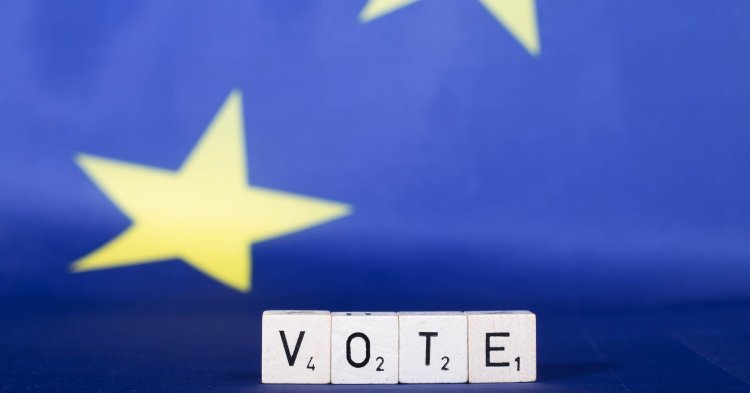If you happened to be watching the same debate in the small town of Edinburgh in Indiana, you had a vote. In Edinburgh in Scotland, British pub-goers didn’t have the same privilege.
Within the EU, the member states are even more closely interdependent. Think of elections in Italy, whose results might have major effects on the Eurozone, and thereby on the economies of countries all across Europe. Or consider France, whose 2017 presidential election was followed enthusiastically by politically engaged people far beyond the country’s borders.
If EU citizens are collectively affected by the results of national elections inside the EU, and if they are informed about the issues at stake, should they be given the opportunity to vote? For example, you might imagine having to pass a test in order to register to vote in another country’s election – akin to a citizenship test.
In local and European elections, EU nationals living in another country already have a residence-based right to vote. Last week the British Labour Party conference supported giving all UK residents the right to vote in British general elections and referenda.
To base voting rights on your interest in the issues, rather than physical residence, would be a step further. You might call it intellectual residence if you wish. In a world where news and political debates spread across national borders online, it is possible for a citizen to exist in multiple countries’ democratic spaces at the same time: your Facebook news feed might show you UK news from the BBC, German news from Der Spiegel and Spanish news from El País right next to each other.
The idea could incentivise Europeans to follow current affairs in each other’s countries more closely than before, and thus help us understand each other better. If you have the chance to vote, you might want to stay updated about what’s happening in a country, even if you’re not a politics addict.
Foreign invasion?
One argument against the idea is that it goes against established principles of federalism: Germans can’t register to vote in regional elections in sixteen different states either. Nonetheless, if we otherwise find that the idea has merit, this shouldn’t be a deciding obstacle. After all, the idea of a pan-European constituency would also be unique among the world’s federal systems. If the innovation suits Europe, then it should be considered.
A far more challenging argument, however, is the threat of ‘foreign invasion’.
Considering that voting even in your home country’s elections is increasingly unfashionable, we might not expect masses of people to rush to the neighbouring country’s ballot boxes. Rather, people who might take up the offer could include people who often visit the country, who might have resided there in the past, or people who have loved ones in the country.
However, let’s imagine a Europe-wide network decides to take on the prime minister of a small country by having its followers register for an election en masse. You could somewhat easily imagine Maltese or Luxembourgish citizens’ voices being deluged underneath those of large pan-European groups’ activists. The elections would hardly be legitimate anymore.
More broadly, in any narrow election that gets decided by ‘foreign votes’, the losing side could be expected to make a fuss. If the idea of voting from abroad starts looking like an affront the moment that foreign voters’ voices actually begin to count, you might ask what the point of the exercise is.
Food for thought
Nonetheless, the thought experiment can give inspiration for more moderate and practicable measures. In an increasingly interconnected Europe, EU member states should start looking at whom they would be ready to enfranchise. As mentioned above, all residents can already vote in local and European elections, and we don’t hear anyone complaining about that. Given this successful experience, why not try the same for national elections?
As for non-residents, if sheer interest isn’t enough of a justification, perhaps member states could extend voting rights to individuals who can demonstrate some other connection to the country. Some ideas were already mentioned above: for example, past residency, marriage to a citizen of the country, or having children who reside in the country could all be circumstances justifying the right to vote.
History has tended to look favourably on countries which have extended voting rights to new groups. We venerate the countries that pioneered women’s suffrage, and we also tend to speak positively of countries which have already lowered the voting age to 16. Likewise, countries that give select groups of non-citizens the vote would be lauded as visionary.


Follow the comments: |
|
